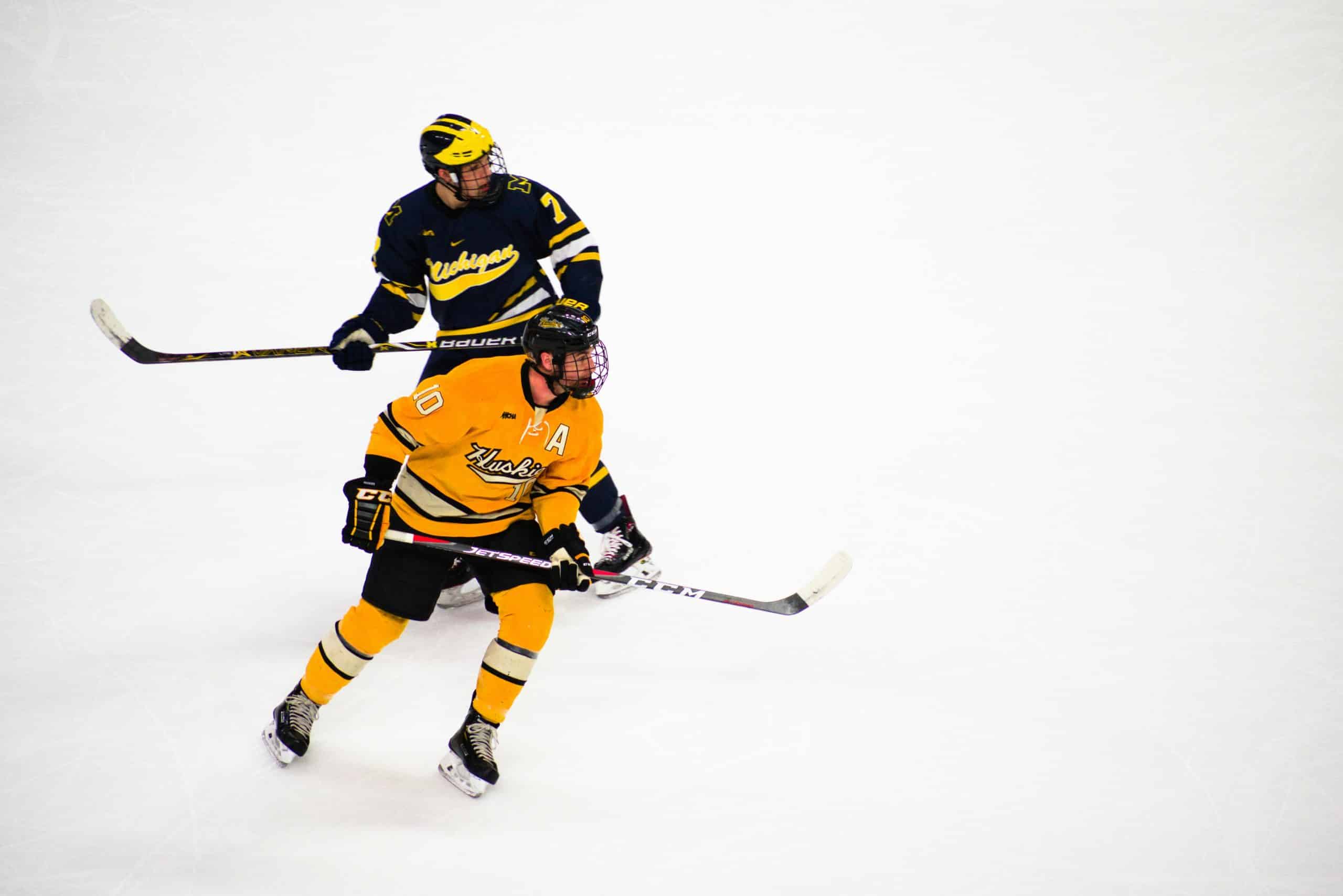How to Implement Mental Toughness Training in Youth Ice Hockey Teams?

In the challenging and demanding realm of ice hockey, physical prowess alone cannot guarantee success. A significant determinant of performance on the ice lies in the mental fortitude of the players. As coaches, it’s your responsibility to ensure that your youth ice hockey team is not only physically ready for the game but mentally prepared as well. This article provides a comprehensive guide on how to implement mental toughness training in youth ice hockey teams.
Understanding the Importance of Mental Toughness in Ice Hockey
Mental toughness is the ability to consistently perform towards the upper range of your talent and skill regardless of competitive circumstances. In ice hockey, where the competition is intense, and the environment is high pressured, mental toughness becomes an essential attribute that can determine the outcome of a match.
Sujet a lire : What Nutritional Adjustments are Needed for Athletes During Recovery from Injury?
The importance of mental toughness in ice hockey cannot be overstated. A player with a high level of mental toughness can adapt to changing situations, make critical decisions under pressure, and maintain focus and confidence in the face of adversity. Developing mental toughness in your youth ice hockey team can give them an edge over their competitors and contribute significantly to their overall performance.
Incorporating Mental Toughness Training into Practice Sessions
When it comes to enhancing mental toughness, practice sessions play a pivotal role. Here are some strategies you can incorporate into your training regimen:
Dans le meme genre : How Can 3D Motion Capture Technology Be Used to Enhance Sprinting Technique?
Goal Setting: Start by helping your players set achievable yet challenging goals. These can be performance-based, such as improving their skating speed or stickhandling skills, or they could be mental goals, like staying focused throughout a game or showing resilience after a loss. Goal setting can instill a sense of purpose in players and motivate them to push beyond their comfort zones.
Simulate Game-Like Situations: By simulating high-pressure scenarios during practice sessions, you prepare your players to handle real-game situations effectively. For instance, you can arrange scrimmages that mimic a tied game with a few minutes remaining on the clock. This not only trains their physical skills but also hones their ability to make quick decisions and cope with stress.
Promote Mental Imagery: Encourage players to visualize their performance before a game or during practices. Mental imagery can boost players’ confidence, optimize their focus, and help them anticipate and respond to various game scenarios.
Encouraging Resilience and Perseverance
Resilience and perseverance are two critical components of mental toughness. Helping your players develop these traits can increase their ability to bounce back from mistakes, cope with adversity, and maintain their performance levels under pressure.
Foster a Supportive Team Environment: A supportive and positive team environment can significantly bolster players’ resilience. Celebrate improvements, encourage players to uplift each other, and ensure that mistakes are treated as learning opportunities rather than failures.
Teach Stress Management Techniques: Equip your players with practical stress management techniques, such as deep breathing exercises, mindfulness, and progressive muscle relaxation. These can help them stay calm and composed during high-pressure situations.
Developing a Positive Mindset
A positive mindset is a foundation of mental toughness. It involves maintaining a positive attitude, believing in one’s abilities, and staying motivated to achieve set goals.
Positive Self-Talk: Encourage your players to use positive self-talk as a tool to boost their morale and confidence. Phrases like "I can do this" or "I’m a great player" can help them overcome self-doubt and perform better.
Focus on the Process, Not the Outcome: It’s essential for players to focus on the game’s process rather than the outcome. This can prevent stress and anxiety associated with winning or losing and help them stay centered on their performance.
Building Mental Toughness Through Physical Training
Physical training can also contribute to mental toughness. By pushing their physical limits, players can learn to endure discomfort, improve their self-discipline, and develop resilience.
Incorporate High-Intensity Workouts: High-intensity workouts can challenge your players physically and mentally. The effort required to complete such workouts can improve their mental toughness.
Promote Regular Exercise: Regular exercise can boost players’ moods, reduce anxiety, and improve their focus – all of which are beneficial for mental toughness.
Incorporating mental toughness training into your youth ice hockey team’s regimen is a long-term process. It requires patience, empathy, and a sound understanding of the different aspects of mental toughness. By implementing these strategies, you can equip your players with the mental fortitude needed to succeed on the ice.
Balancing the Physical and the Mental in Youth Ice Hockey Teams
In youth ice hockey, a balance between physical prowess and mental toughness is vital for success. While the physical aspect often receives significant attention, the mental aspect leaves much room for development. As a coach, your role extends beyond the rink and gym. It involves preparing your young athletes to take on the mental game with the same vigor and enthusiasm as the physical.
Incorporate Sports Psychology: Sports psychology plays a pivotal role in mental toughness training. Introducing sports psychology in training can help players understand and manage their thoughts, emotions, and behaviors. This psychological knowledge can significantly enhance their performance training, leading to peak performance.
Performance Training: Combined with physical drills, performance training focusing on mental skills can be introduced. This could involve critical thinking exercises, concentration drills, and teamwork challenges to stimulate the mind and develop mental toughness.
Work with a Mental Coach: If feasible, consider engaging with a mental coach, who can bring a new dimension to the team’s training. A mental coach, like Doc Wally, can provide expert guidance to shape the players’ mental game effectively, leading to a stronger mental edge in them.
Conclusion: Instilling Mental Toughness for Life Beyond Ice Hockey
Ice hockey, much like any sport, is not just about the technical skills or the physical strength. The mental game plays an equally, if not more, critical role in determining success. As coaches, our responsibility extends beyond the rink – it involves preparing our young athletes for challenges both on and off the ice.
Mental toughness training is not just about cultivating a winning mindset. It goes beyond that, equipping players with life skills that will serve them well beyond the hockey misgoodbuildsite. Skills like resilience, perseverance, stress management, and the ability to cope with adversity are not just useful on the ice but are valuable life skills.
The journey to instilling mental toughness in your young hockey players is not an overnight process. It is a high school of sorts, a journey that involves patience, empathy, and a sound understanding of sports psychology. But the rewards of this journey are well worth the efforts. Not only will your players become better at their game, but they will also be more prepared to tackle life’s challenges.
By incorporating mental toughness training into your youth ice hockey team’s regimen, you are not just creating a team that has a mental edge on the ice. You are shaping young individuals who are ready to face the world, armed with resilience, perseverance, and the ability to remain calm under pressure. So, take the challenge head-on and start your team on this transformational journey today. It’s not just about building better hockey players; it’s about nurturing stronger individuals for the world.
